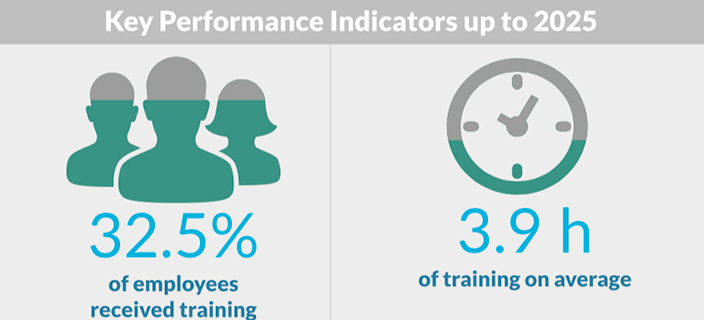
Encouraging social and professional inclusion
Encouraging social mobility and helping our employees and our community to develop skills are part of our values. Employees get to meet with the executive team at least once a year to foster communication, evaluate progress relative to objectives, clarify expectations, determine training needs, discuss requests and plan for the future. Our company considers training to be essential to performance. Even while training supports skills development, maintains employability, and improves access to various levels of professional qualification for our staff, it also strengthens the company’s competitiveness. New employees receive a personalized welcome specific to their job title and their duties. An interview with the executive team helps new employees to define their objectives, missions and main tasks, and to determine any necessary training. The executive team of each of the company’s sites invites new employees and all team members for a friendly meal to facilitate introductions, encourage a sense of belonging, and help new employees get quickly up to speed. At the end of the first month, the new employee and the executive team meet to carry out a status update and to review completed tasks. After six months, new employees provide their initial impressions about the company and offer suggestions for improvement. Also, by offering attractive internships, we help interns round out their training, and offer an introduction to the workplace or to an unfamiliar business sector. A special program geared towards Polynesian students was created in collaboration with the Delegation of French Polynesia in Paris and one high school in Tahiti, offering professional internships in the European Union or alternating internships between our sites in the South Pacific and in France.
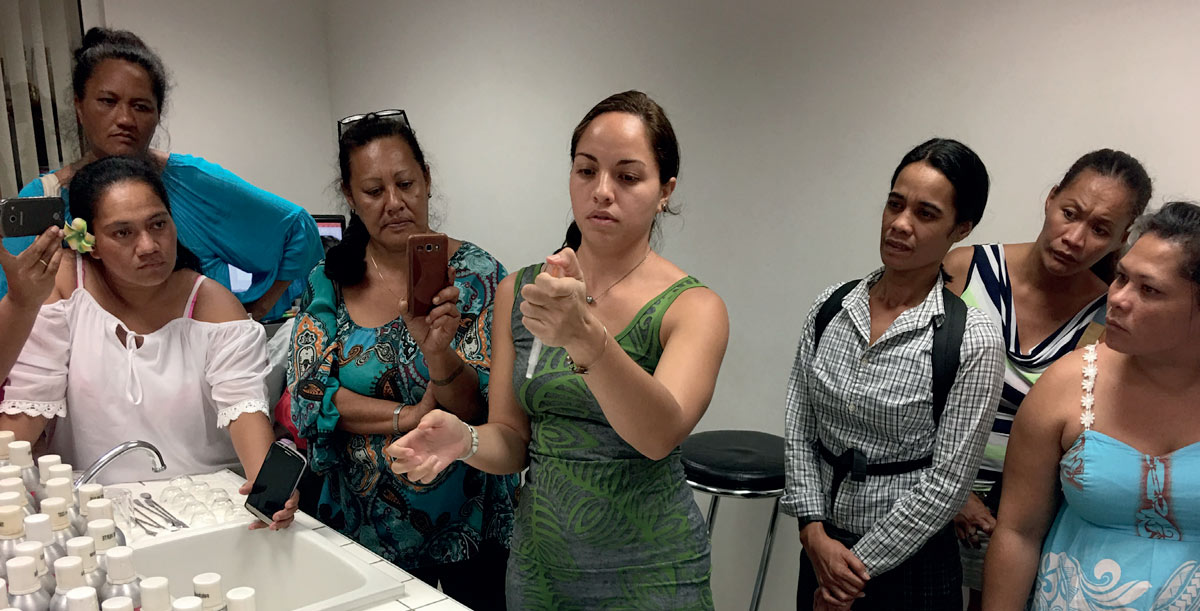
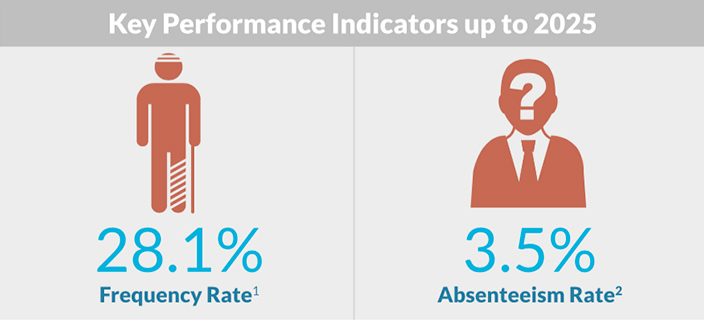
Improving quality of life in the workplace
We consider well-being as a source of motivation. Quality of life in the workplace is determined by the conditions in which employees perform their job. Not only is quality of life on the job essential to the health and well-being of individual employees, it is also a factor in company performance, since happy employees are more committed to their jobs and more productive. Two indicators serve as red flags for a deteriorating quality of life in the workplace: the absenteeism rate and the turnover rate. Regular absences and frequent change in staff may indicate a hostile work environment or difficult working conditions. An overly high rate of absenteeism not only impairs productivity and performance, it can undermine workplace cohesion and indicate a certain level of disengagement with the job. The goal is not to eliminate all absences, but to identify those that are red flags for poor work conditions. Furthermore, the company views employee health and safety as more than just a regulatory obligation; rather, the health and safety of those who work at the company (employees, interns, service providers) and those who visit our sites (clients, suppliers, visitors) form an imperative stemming from our company’s values. No company is immune to psychosocial risk. In Tahiti, questionnaires are distributed internally to employees, asking them to express their opinions on a variety of subjects, such as working conditions, internal relations and safety. To promote a stress-free work environment and stimulate creativity, relaxation spaces and open-space design are currently being introduced to the company’s two sites.
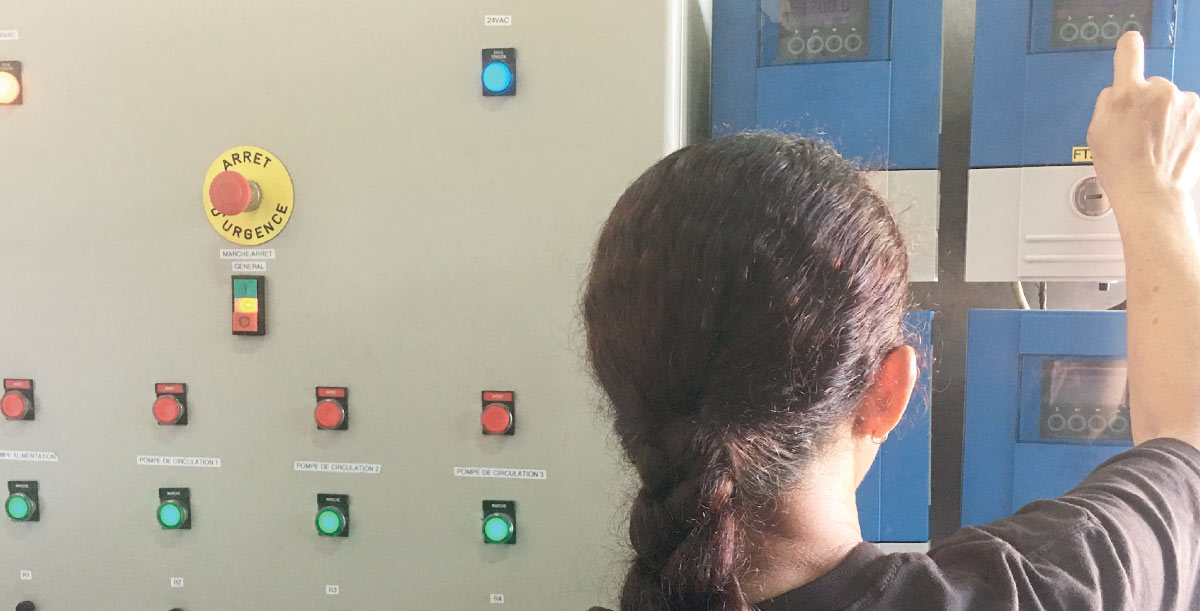
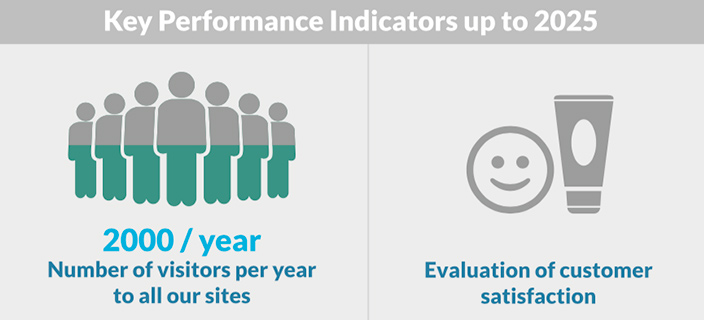
Taking care of communities


